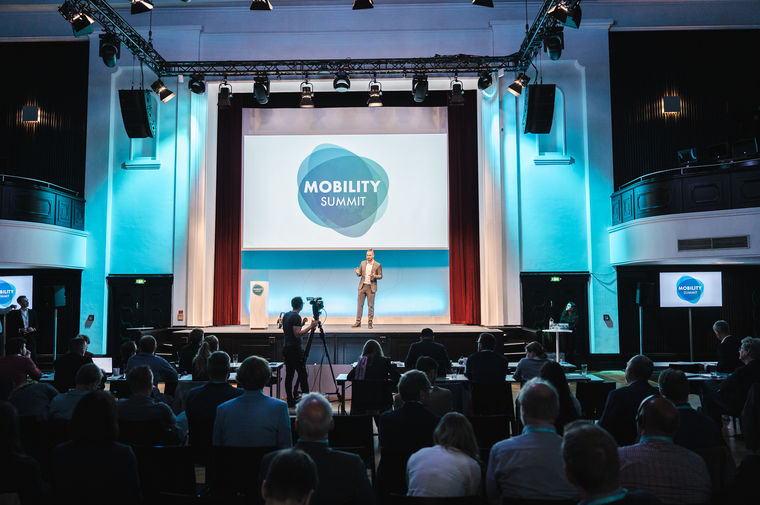Mobility Summit 2022: MaaS as a contribution to the public transport revolution
- Hacon and eos.uptrade brought together industry representatives to discuss the future of mobility
- Presented concepts for a more extensive use of public transport
- MaaS Partnership Network facilitates collaboration between stakeholders
Hacon and eos.uptrade, both Siemens Mobility subsidiaries, invited transportation companies and other partners from around the world to Hamburg for the Mobility Summit, the annual meeting of representatives from the mobility industry. On May 31 and June 1, participants from a total of 13 countries accepted the invitation and discussed on May 31 and June 1 what will shape mobility in the future.
For the participants of this year's Mobility Summit in Hamburg, the aspects of flexibility, individuality and simplicity played a central role in the question of how the turn to public transport can succeed.
Both in part to the pandemic and increased implementation of new, as well as flexible forms of working, an array of new concepts are needed to ensure that the changed mobility requirements of passengers are met. Above all, door-to-door travel must be made easy.
When it comes to fares and purchasing tickets, passengers also want simple solutions tailored to their mobility needs. There was therefore extensive discussion of how an intelligent sales platform could reduce the complexity of underlying fare systems for passengers, what opportunities dynamic pricing might offer, and how wide the bandwidth is between fixed and best price. One example of innovative fare management was the tried-and-true XiXo solution from eos.uptrade: passengers simply use public transport in a relaxed manner without any knowledge of tariffs or fares and are given the best price.
The consensus at the event was that public transport is the backbone of mobility change and that the connection between public transport and additional transportation modes should be increased. This can be achieved by closely linking traditional public transport services with new mobility service providers, some of which are operated by the private sector. This applies, for example, in rural areas or during off-peak times. In areas where traditional scheduled and timetable-based transport often cannot be operated economically with the necessary frequency, digitally orchestrated on-demand services can be a valuable supplement.
The core message of numerous presentations was: Mobility as a Service is a key driver of the transportation revolution. In Hamburg, four current MaaS projects, in which the Summit organizers are involved as technology service providers, demonstrated how the seamless integration of different services can succeed: Rivier (Netherlands), Renfe (Spain), Telekom MobilitySolutions and Rhein Main Verkehrsverbund RMV presented the current status of their platform projects.
In the panel discussion with representatives from public transport, consulting, car sharing and technology companies, the participants then discussed further levers needed for sustainable changes in transport behavior - and how the various players can contribute to this. One of the points emphasized was that, in addition to pull measures in favor of environmentally friendly modes of transport, push measures are also needed to take away the privileges of environmentally unfriendly modes of transport. Politicians will have a key role to play here in shaping the framework conditions.
The MaaS Partnership Network, initiated by the organizers of the Summit and presented there for the first time, has the declared goal of strengthening cooperation and continuous exchange between the various stakeholders in the MaaS ecosystem. Common goals include reducing complexity within MaaS solutions and making integrations more efficient from a technical and organizational perspective.
Hacon and eos.uptrade see MaaS as an important fundament for the most significant changes in mobility. Together with Padam Mobility (France), Bytemark (USA) and Sqills (Netherlands), these two companies have formed the Software Business Unit at Siemens Mobility as of May of this year. Together, they deliver individual modules to complete MaaS mobility packages for transport operators and passengers: from trip planning to passenger communication, mobile ticketing and reservation systems, to fleet management and on-demand traffic, timetabling and mobility data analytics.


